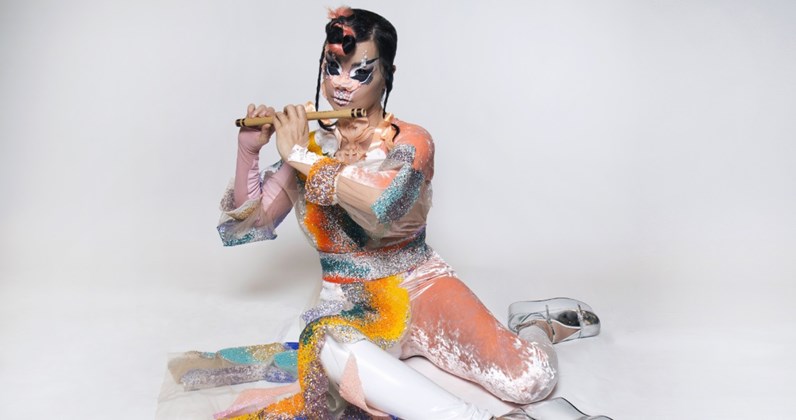Björk sits boldly on the cover of Utopia, an empress of the blissful world she creates within it. Her ninth album is a brave attempt to express the perfection of being in love, and through it her emotions pour out unrestrained. The result is one of serene beauty: Björk’s powerful voice always at the fore, captured against a shimmering backdrop of startling beats, echoing flutes and distant birdsong.
Much of this album is strikingly personal, documenting Björk’s newfound love since the split from her long-term partner Matthew Barney in 2013, an intense heartbreak that inspired the anguish of her previous album, Vulnicura. Here, Björk celebrates the joys of opening up her heart again to feel – the entrancing narrative of ‘The Gate’ detailing how her chest wound from Vulnicura has since healed, now forming a gate from which she can give and receive a reawakened love.
Björk is expert at building emotional landscapes from her bare feelings, constructing songs that are both intensely private and entirely welcoming. The track ‘Sue Me’ is an impassioned account of Barney’s legal attempts to gain custody of their daughter, but also a feminist call to women to resolve the social failures passed down between men – more bluntly described later in ‘Tabula Rasa’ as the “fuckups of the father”.
Over the course of the album, Björk allows the listener to slowly submerge themselves in her utopia, surging through the journeys of love in all its forms – the ethereal beauty of openers ‘Arisen My Senses’ and ‘Blissing Me’, the bewildering passions of “Body Memory”, the ultimate hopes of ‘Utopia’. The whole product is utterly mesmerising, and resonates with a shared intimacy found only between two human beings. On Utopia, Björk has crafted a personal paradise, and we are blessed to have been let inside it.
Ishmael Silvestro

